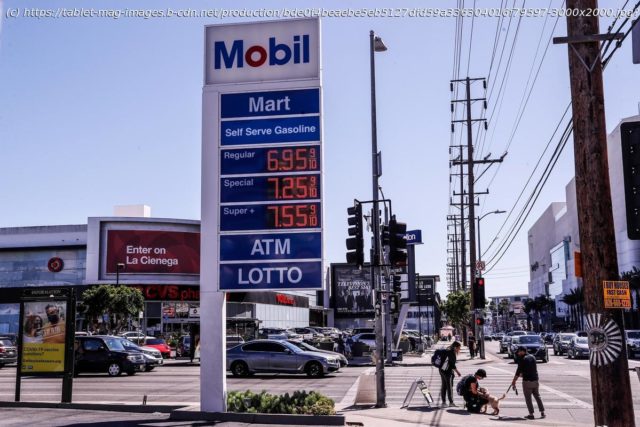By misjudging the size and importance of Russia’s economy, the West might have taken steps toward its own isolation
Remember the claims that Russia’s economy was more or less irrelevant, merely the equivalent of a small, not very impressive European country? “Putin, who has an economy the size of Italy,” Sen. Lindsey Graham, R-S. C. , said in 2014 after the invasion of Crimea, “[is] playing a poker game with a pair of twos and winning.” Of increasing Russian diplomatic and geopolitical influence in Europe, the Middle East, and East Asia, The Economist asked in 2019, “How did a country with an economy the size of Spain… achieve all this?”
Seldom has the West so grossly misjudged an economy’s global significance. French economist Jacques Sapir, a renowned specialist of the Russian economy who teaches at the Moscow and Paris schools of economics, explained recently that the war in Ukraine has “made us realize that the Russian economy is considerably more important than what we thought.” For Sapir, one big reason for this miscalculation is exchange rates. If you compare Russia’s gross domestic product (GDP) by simply converting it from rubles into U.S. dollars, you indeed get an economy the size of Spain’s. But such a comparison makes no sense without adjusting for purchasing power parity (PPP), which accounts for productivity and standards of living, and thus per capita welfare and resource use. Indeed, PPP is the measure favored by most international institutions, from the IMF to the OECD. And when you measure Russia’s GDP based on PPP, it’s clear that Russia’s economy is actually more like the size of Germany’s, about $4.4 trillion for Russia versus $4.6 trillion for Germany. From the size of a small and somewhat ailing European economy to the biggest economy in Europe and one of the largest in the world—not a negligible difference. Sapir also encourages us to ask, “What is the share of the service sector versus the share of the commodities and industrial sector?” To him, the service sector today is grossly overvalued compared with the industrial sector and commodities like oil, gas, copper, and agricultural products. If we reduce the proportional importance of services in the global economy, Sapir says that “Russia’s economy is vastly larger than that of Germany and represents probably 5% or 6% of the world economy,” more like Japan than Spain. This makes intuitive sense. When push comes to shove, we know there is more value in providing people with the things they really need to survive like food and energy than there is in intangible things like entertainment or financial services. When a company like Netflix has a price-earnings ratio three times higher than that of Nestlé, the world’s largest food company, it’s more likely than not a reflection of market froth than of physical reality. Netflix is a great service, but as long as an estimated 800 million people in the world remain undernourished, Nestlé is still going to provide more value. All of which is to say that the current crisis in Ukraine has helpfully clarified how much we’ve taken for granted the “antiquated” side of modern economies like industry and commodities—prices for which have surged this year—and perhaps overvalued services and “tech,” whose value has recently crashed.






